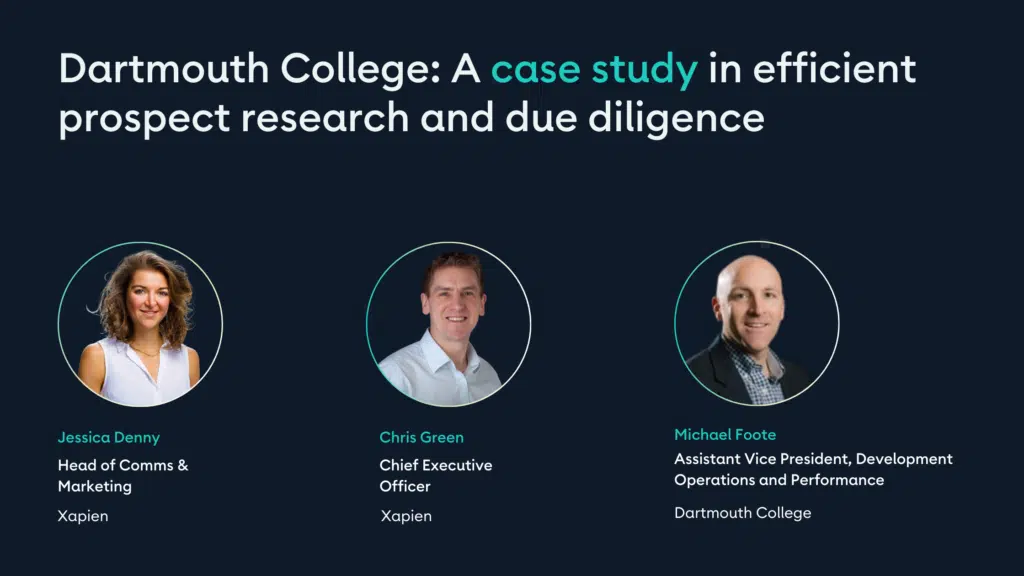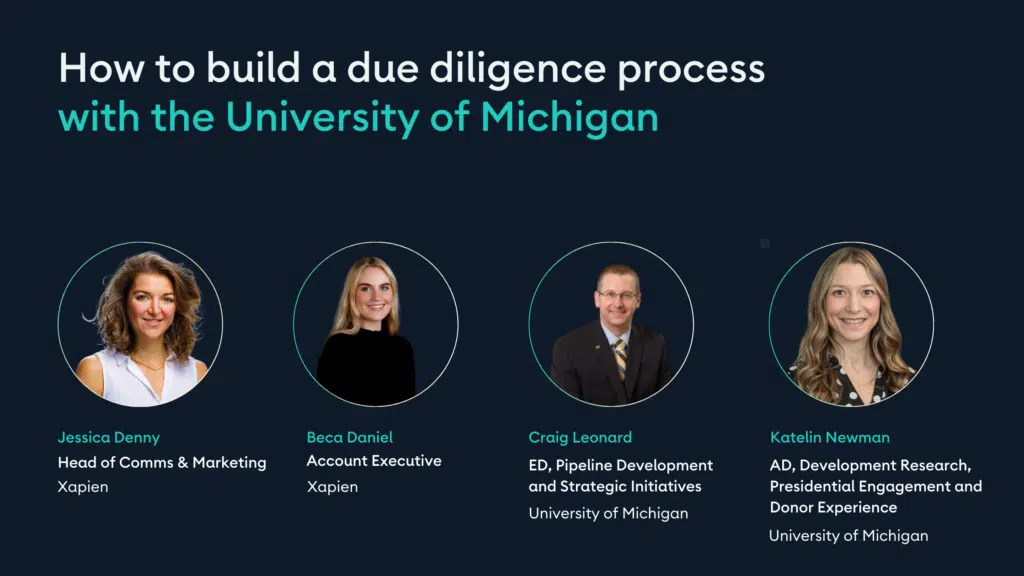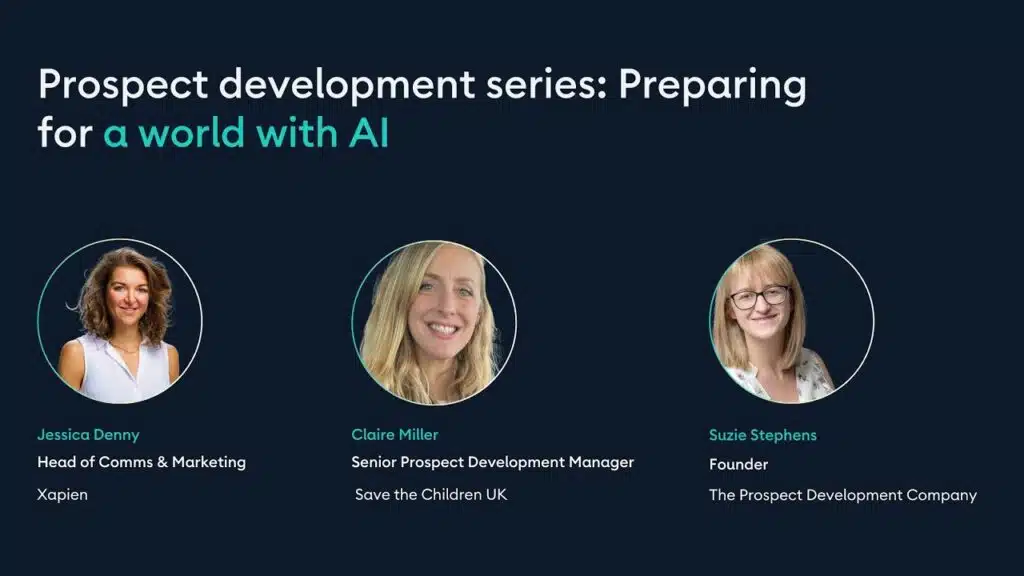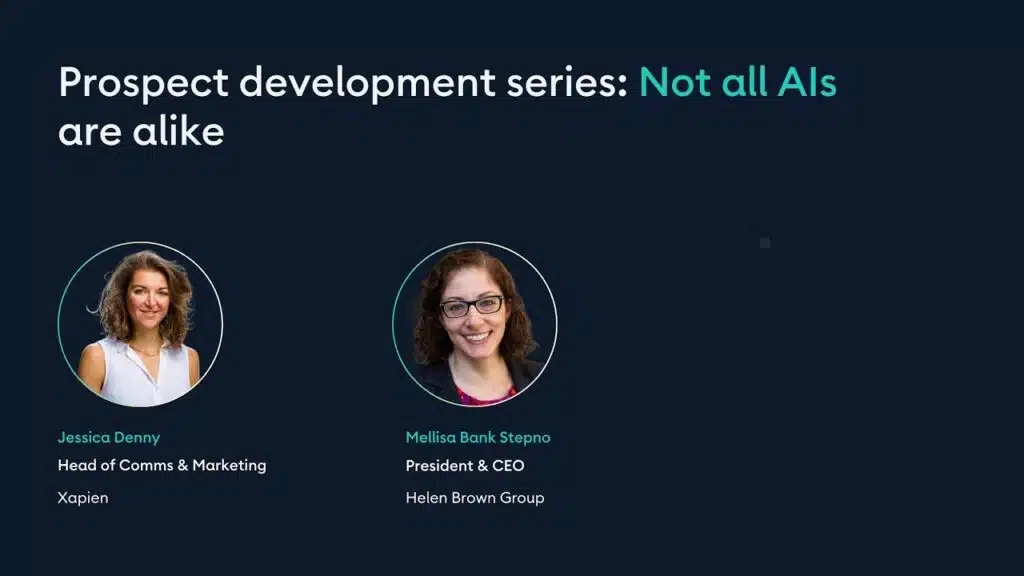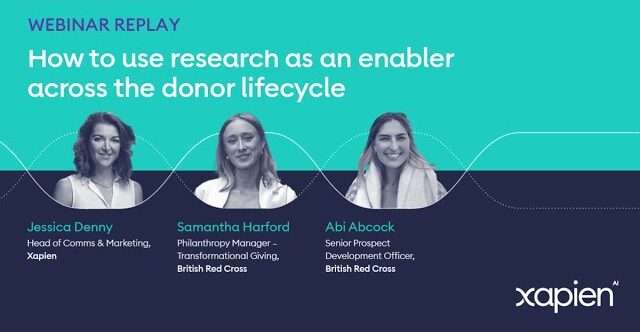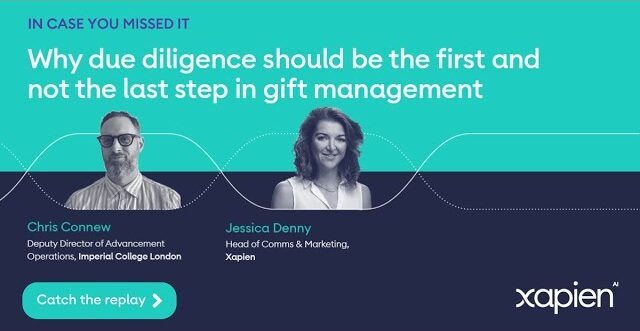Customer story: WaterAid
Ethical and reputational due diligence is a critical component of WaterAid’s organisational strategy. Given WaterAid’s reliance on partnerships with various donors, suppliers, and collaborators, maintaining a robust process for identifying potential risks and opportunities is essential. This need has become even more pronounced with growing global attention on sustainability, financial crime, and governance issues. To address these challenges, WaterAid implemented Xapien to provide ethical checks and streamline information gathering across various departments.
Read MoreWebinar: Dartmouth College case study
Reputational risk at Dartmouth College became a significant concern around 2018-2019, following high-profile cases like the Sackler family. These incidents highlighted the need for better management of philanthropic gifts to avoid negative associations. Dartmouth sought to establish clearer guidelines for reputational risk, initially looking at what other organisations were doing. Their first major experience involved a donor who disclosed that demonstrators often followed him, raising potential publicity risks. However, at the time, tools to assess reputational risk were limited. Dartmouth hired a company that provided a lengthy, expensive dossier, but the process was inefficient. Over time, they explored other tools but continued seeking a more efficient, confidence-building solution to identify red flags and risks associated with potential donors. Then, they found Xapien which has since centralised and streamlined reputational risk management.
Read MoreUniversity of Michigan
In 2018, the University of Michigan noticed troubling behaviour from donors, which prompted the institution to build a new due diligence process. The University set a $5 million threshold for due diligence, as donations of that size are often tied to major recognition events. To prevent bias, existing major donors making a new gift also undergo renewed due diligence. The development research team led the process, collaborating closely with the legal team to ensure they weren’t solely responsible for assessing risks. They could rely on the legal team to clarify real concerns versus standard business practices.
Read MoreKing’s College London
Xapien is continuously evolving and improving its product. As the tool develops, so do the use cases. KCL’s adoption of Xapien provides a great example of how an institution can effectively leverage the AI-powered tool to support a variety of departments across the university.
Read MoreWebinar: University of Michigan case study
The University of Michigan noticed growing concerns with certain philanthropists and decided to review its due diligence process. The research team led the development of a new approach, working closely with senior leadership, legal, and compliance teams. At first, they struggled with gathering too much information, but with input from legal and DEI teams, they refined their focus on key risks. They also created a decision matrix to align with institutional values and reduce bias. In 2020, the university launched a new process using Xapien, allowing them to generate comprehensive reports in just 10 minutes. This improved efficiency and helped them identify donor risks earlier on.
Read MoreWebinar: Prospect development—preparing for a world with AI
This webinar explores the evolution of prospect research and the transition from traditional methods to modern technology. Initially, researchers relied on manual data entry. But advancements in technology, particularly search engines and AI, have transformed the efficiency and accessibility of information. Despite these changes, the core mission of prospect research—maximising fundraising potential for nonprofits—remains unchanged. AI has simply enabled researchers to provide timely insights to fundraisers. They’re evolving from just information gatherers to strategic partners, collaborating with fundraisers to develop effective engagement strategies.
Read MoreAnglia Ruskin University
Anglia Ruskin University (ARU) faced challenges in maintaining a consistent due diligence process for international partnerships, which posed potential risks for the organisation. Due diligence was carried out manually, resulting in time-consuming efforts that often got deferred until the final approval stages. As a result, the university felt compelled to carefully evaluate the relationship, given the substantial time and effort already invested.
Read MoreWebinar: Prospect development—not all AIs are alike
There’s a need for reliable AI tools in the prospect development space, especially as AI models evolve rapidly. Purpose-built tools can simplify the role of researchers, allowing them to focus on strategic tasks instead of constantly retraining. AI has the potential to elevate roles within organisations, moving professionals beyond administrative tasks to become strategic partners in fundraising and decision-making processes. It draws parallels to the early days of the internet. While AI is currently in a nascent stage, it will become integral to work processes, much like search engines have. Before using AI tools, particularly generative models, it’s essential to review privacy policies to ensure that sensitive data isn’t misused. Research tools built specifically for the industry, like Xapien, are more appropriate for handling confidential information about prospects.
Read MoreWebinar: How to use research as an enabler across the donor lifecycle
In this webinar, we look at how the British Red Cross (BRC) prospect development team delivers tailored, high-quality research to unlock value for the transformational giving team, partnerships team, and a diverse group of fundraisers focused on securing high-value gifts from individuals, trusts, foundations, corporate partners, and institutional funding bodies. This research is essential for engaging and nurturing donor relationships, understanding the philanthropic landscape, and making data-driven decisions that enhance fundraising strategies. Most importantly, it supports relationship management by identifying optimal moments to increase donor support. Additionally, it aids in framing proposals and determining which British Red Cross team members are best suited to engage with specific donors. This approach ensures a more informed and personalised strategy for building long-term relationships with BRC donors.
Read MoreWebinar: Why due diligence should be the first and not the last step in gift management
In this webinar, we’re joined by Chris Connew, the Head of Operations in the Directorate of Development and Alumni Engagement at Queen Mary University of London. We discuss how to drive efficiencies in philanthropy, the role of due diligence in gift management, and where it should fit within the process (spoiler alert: it’s not at the end). We also explore how to use due diligence to create an efficient gift management process, enabling organisations to speed up the gift acceptance process.
Read More
